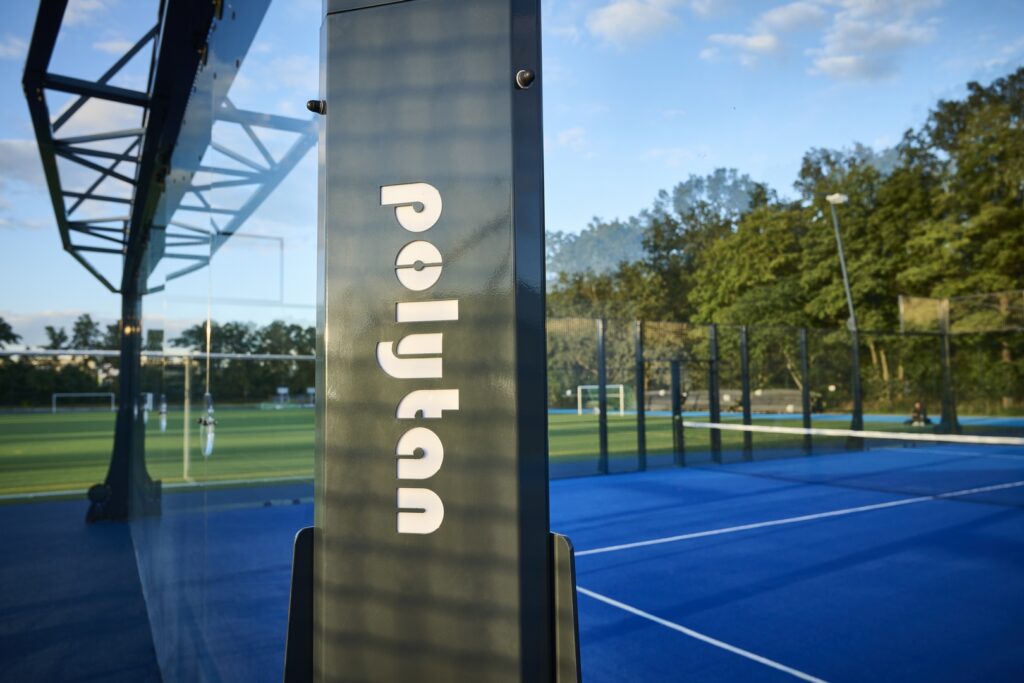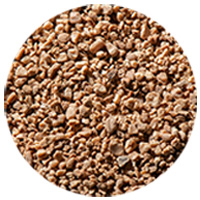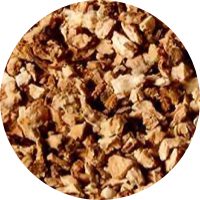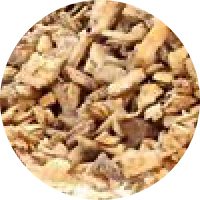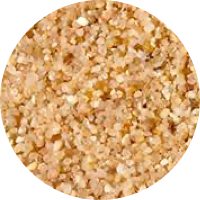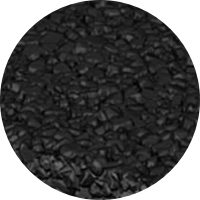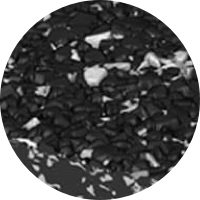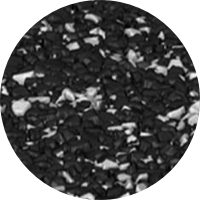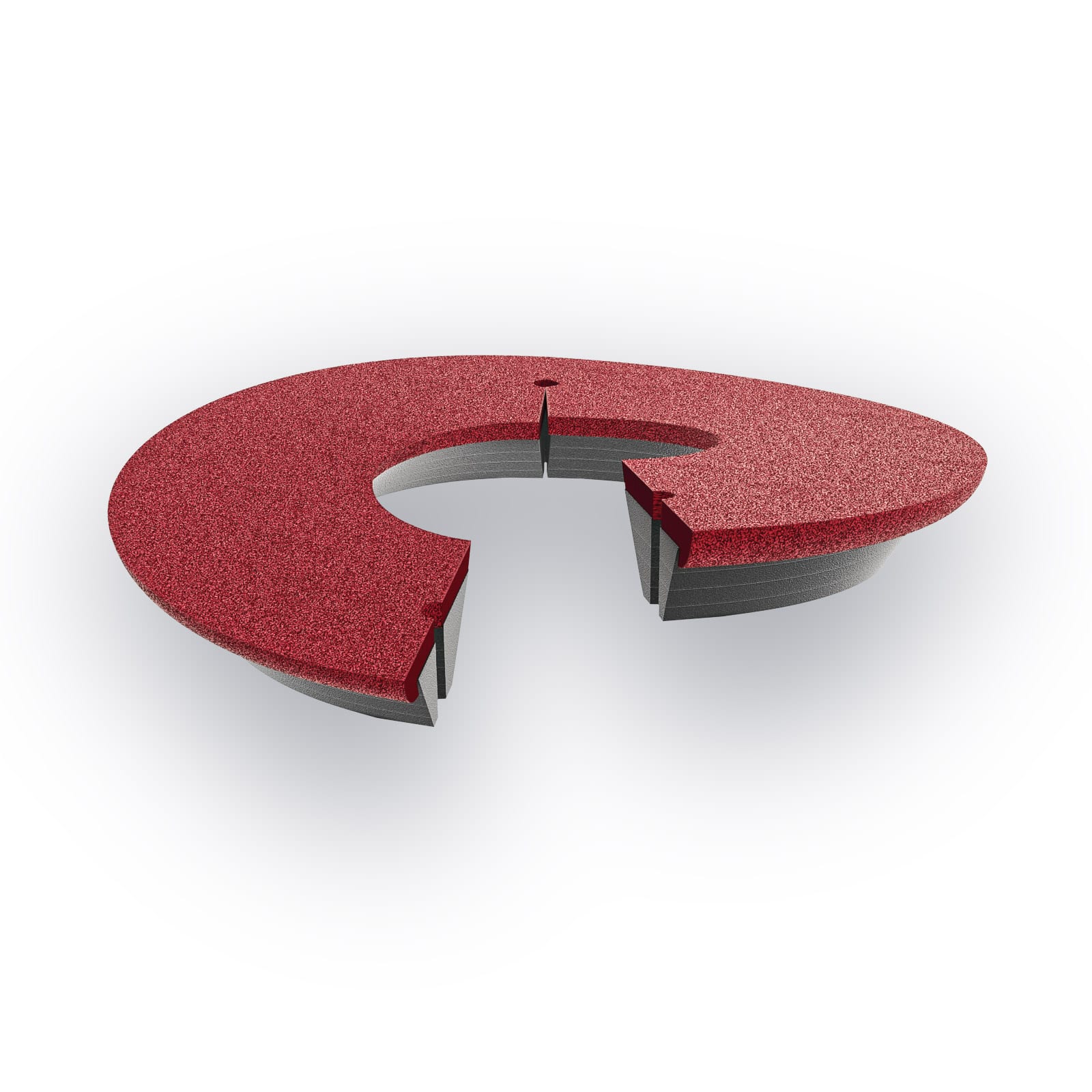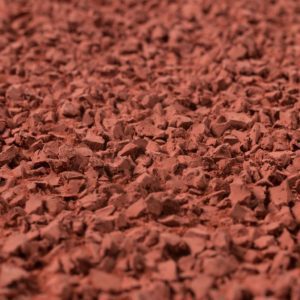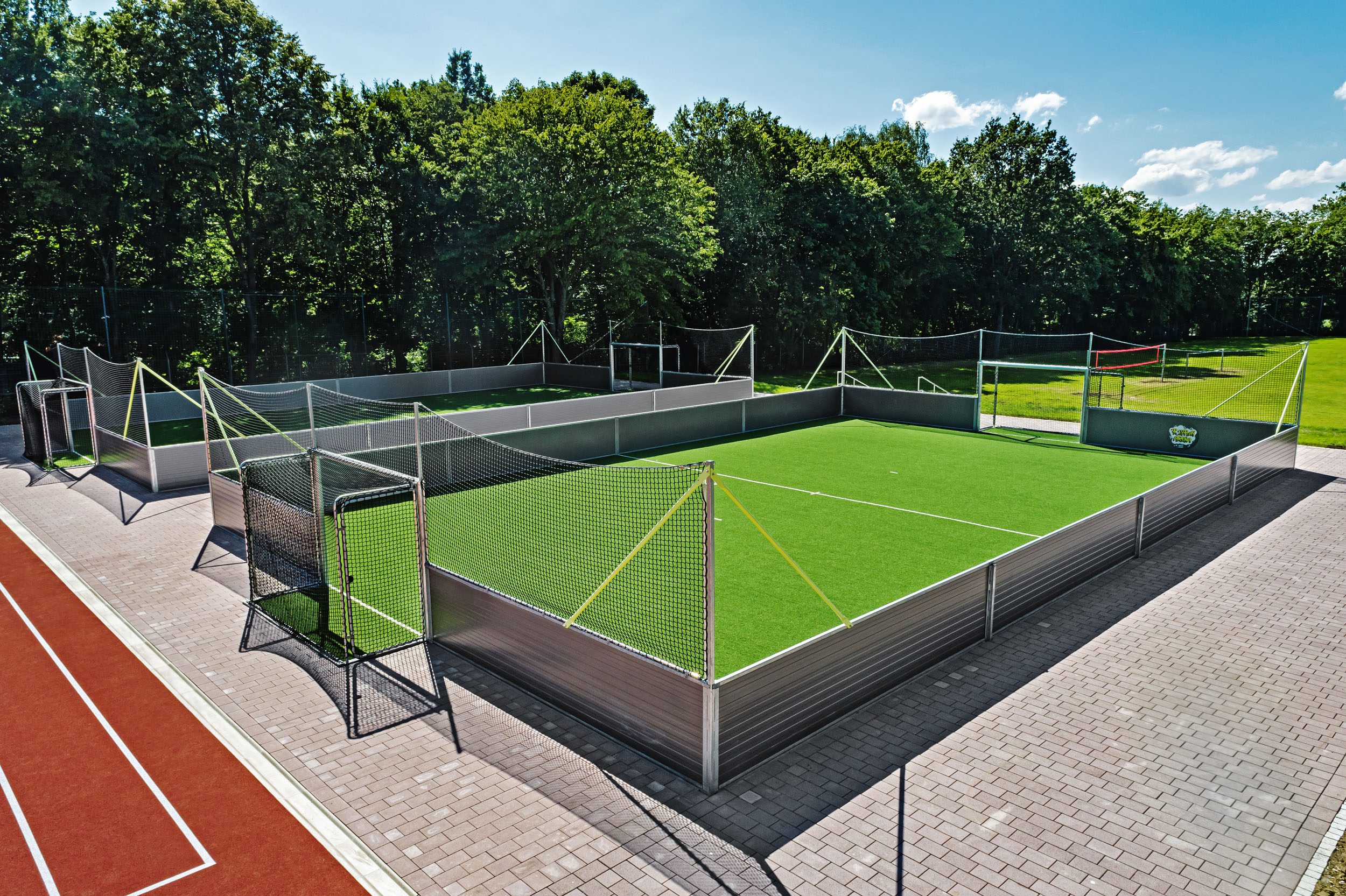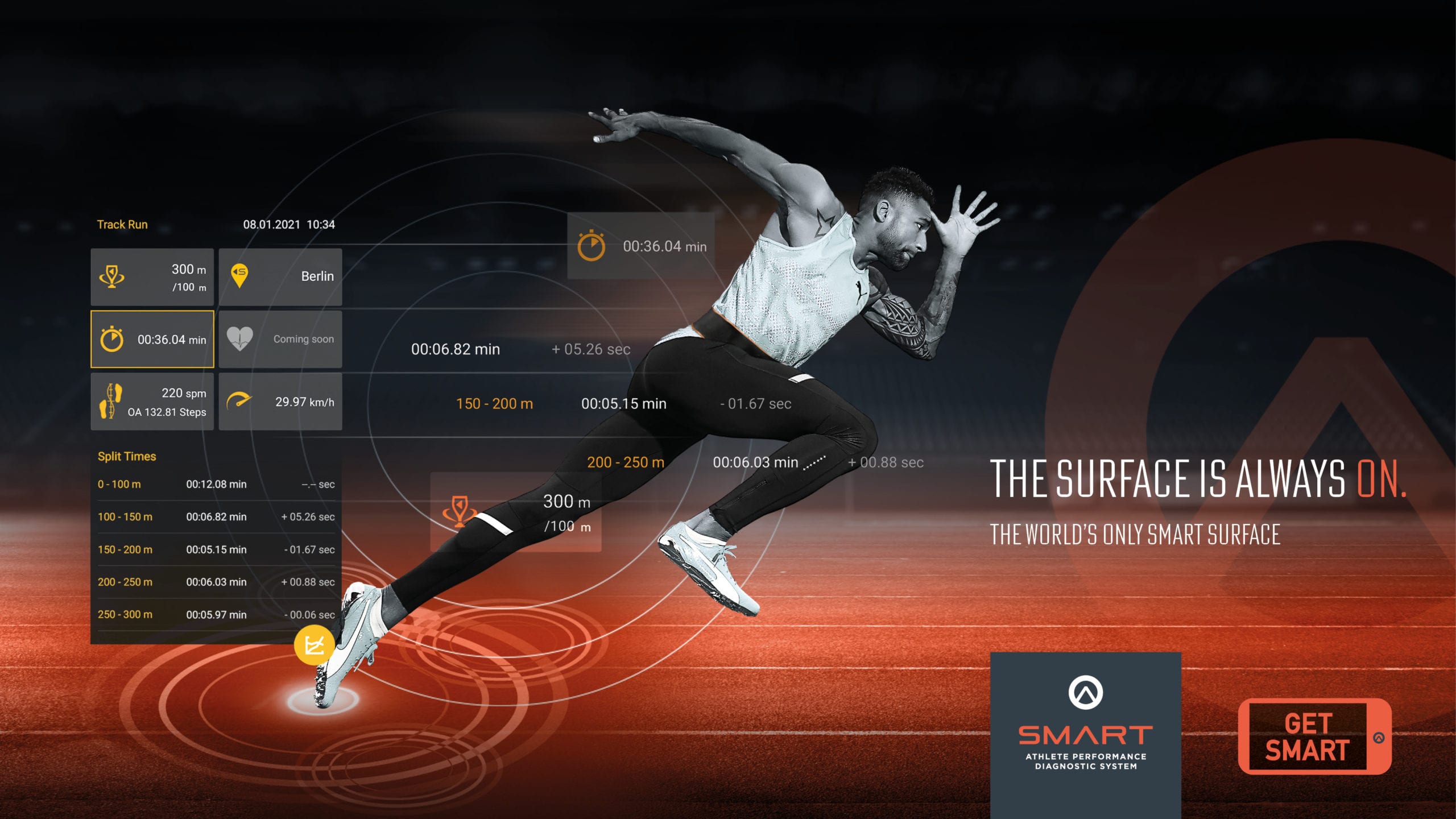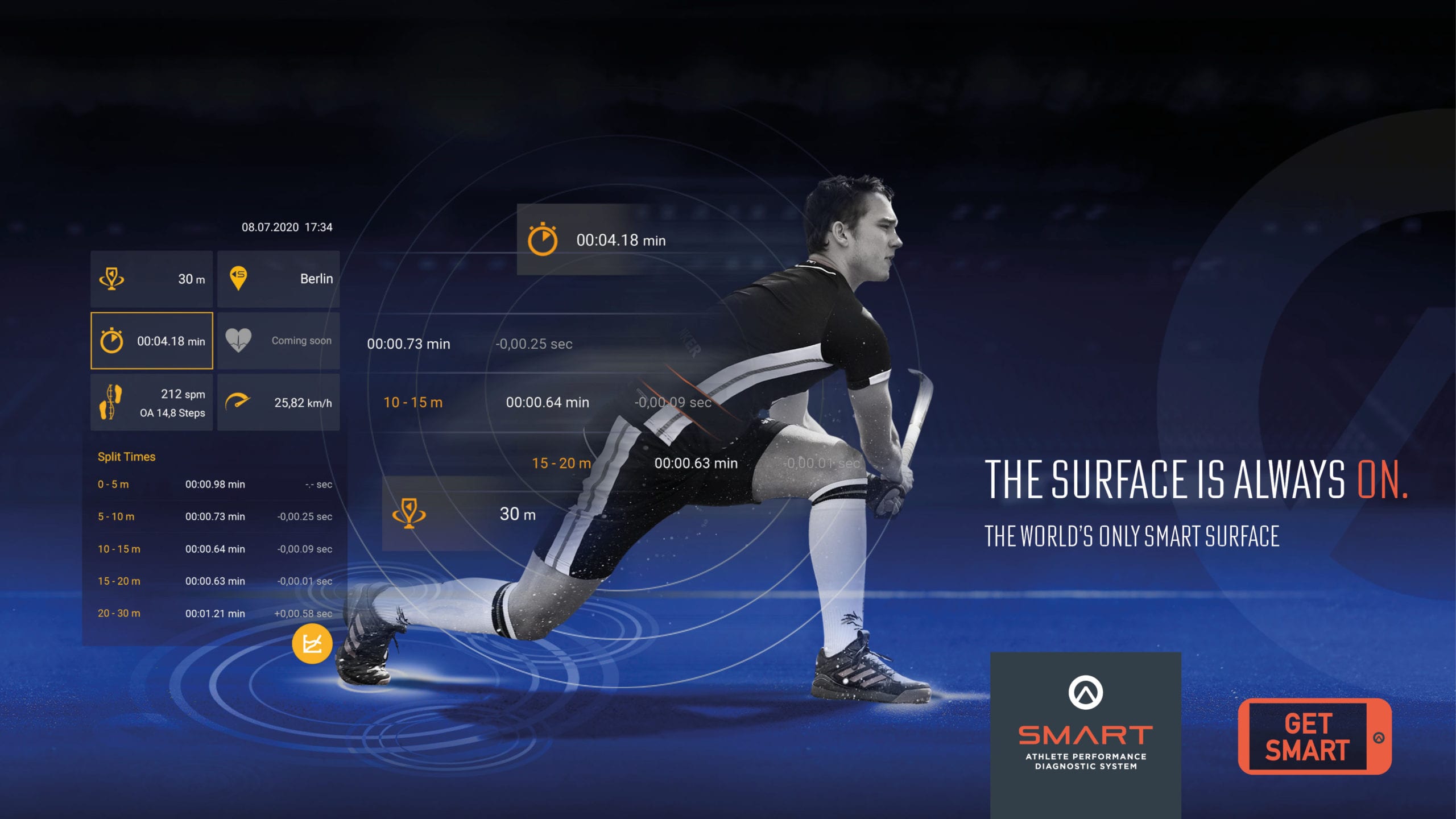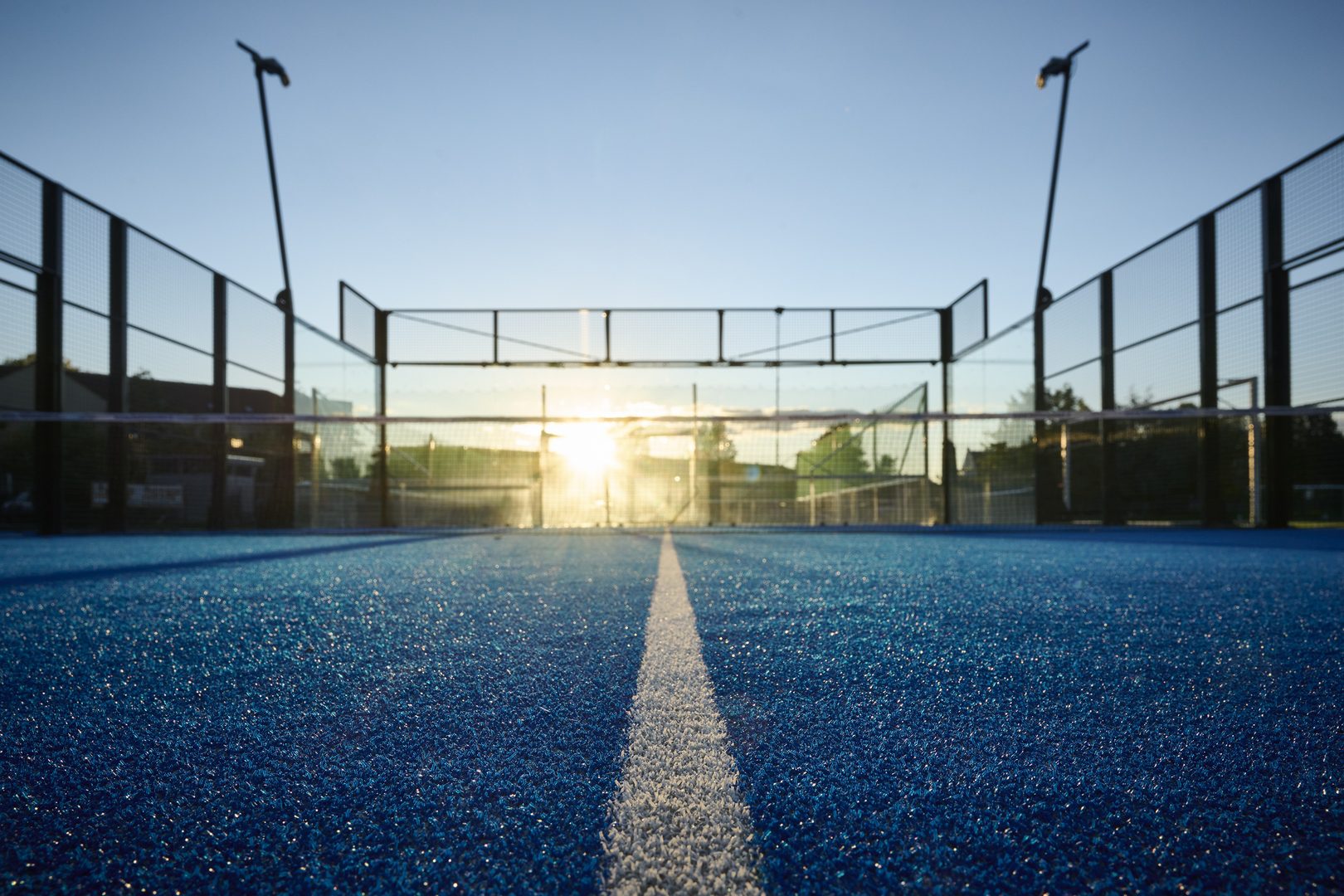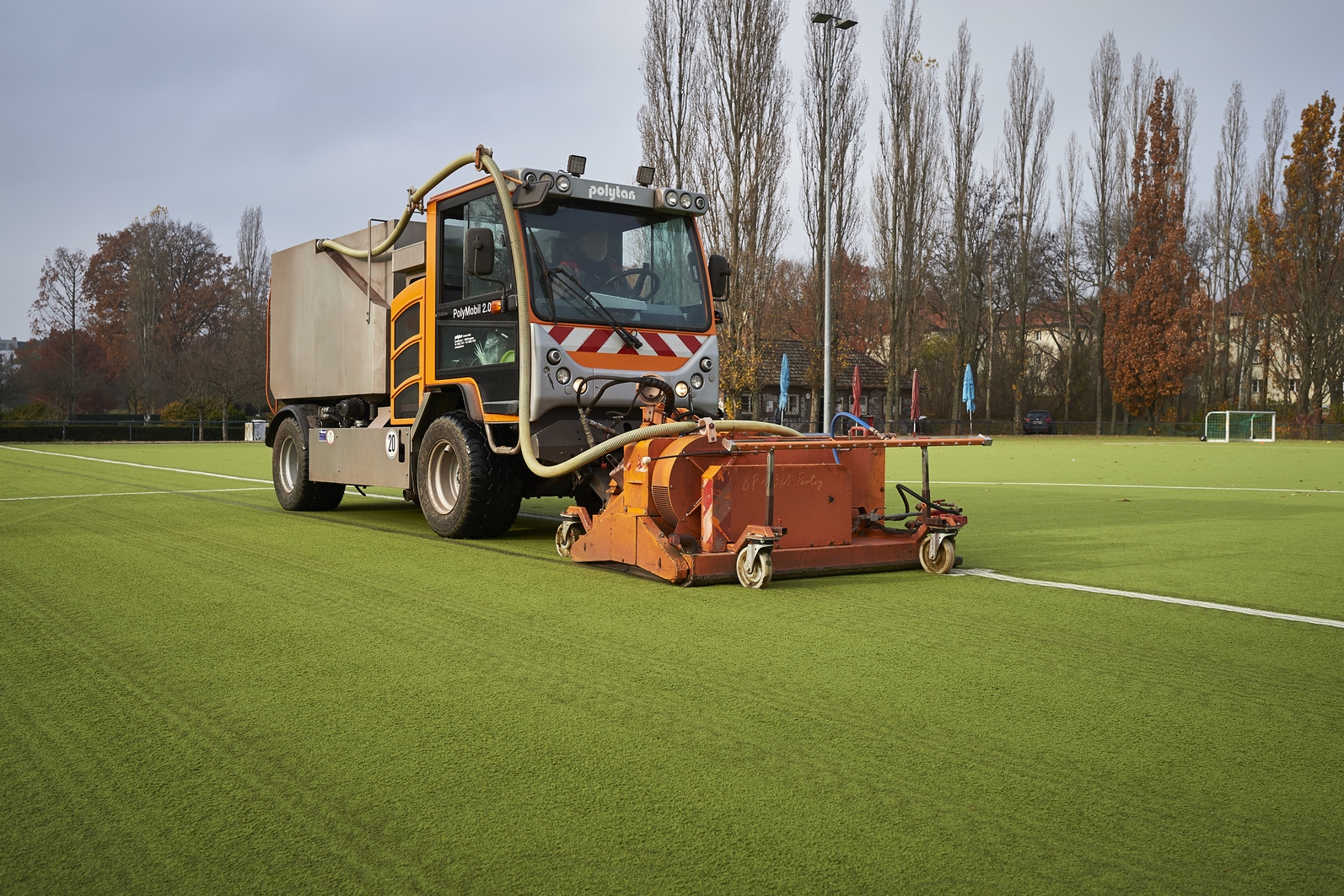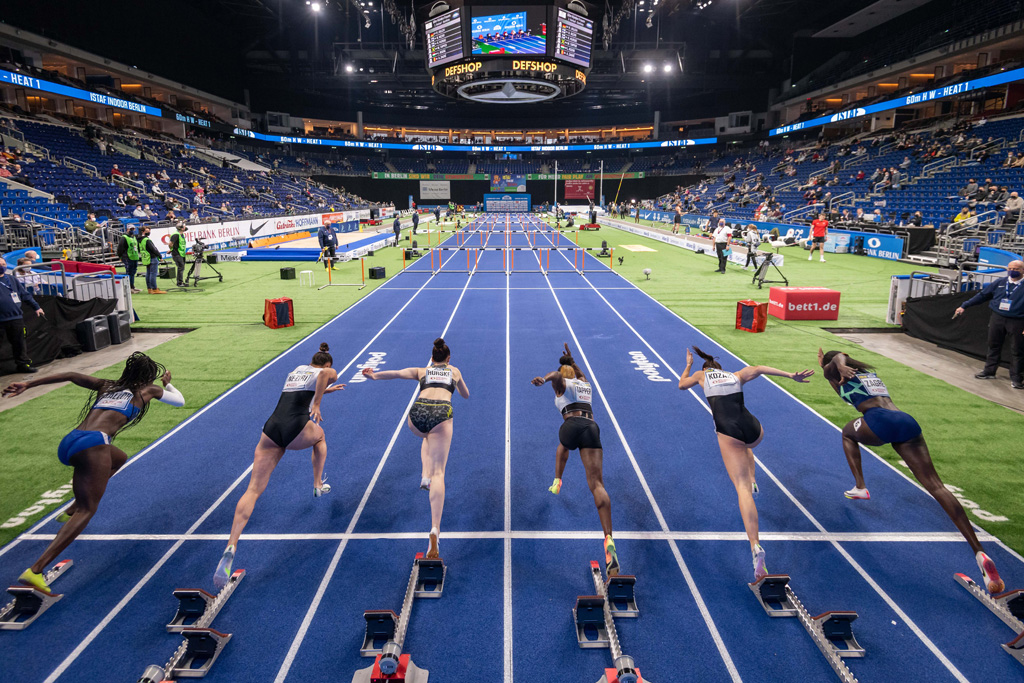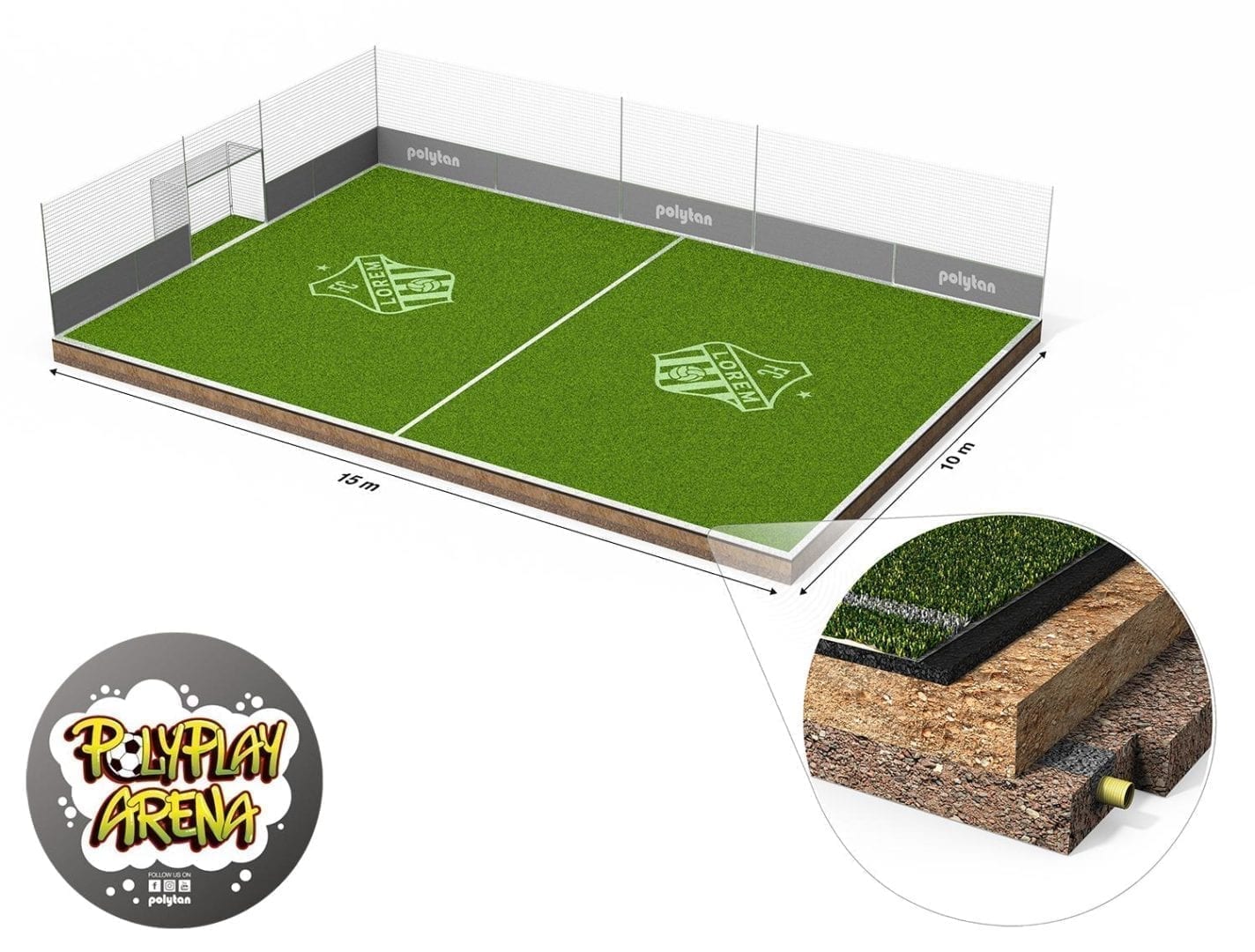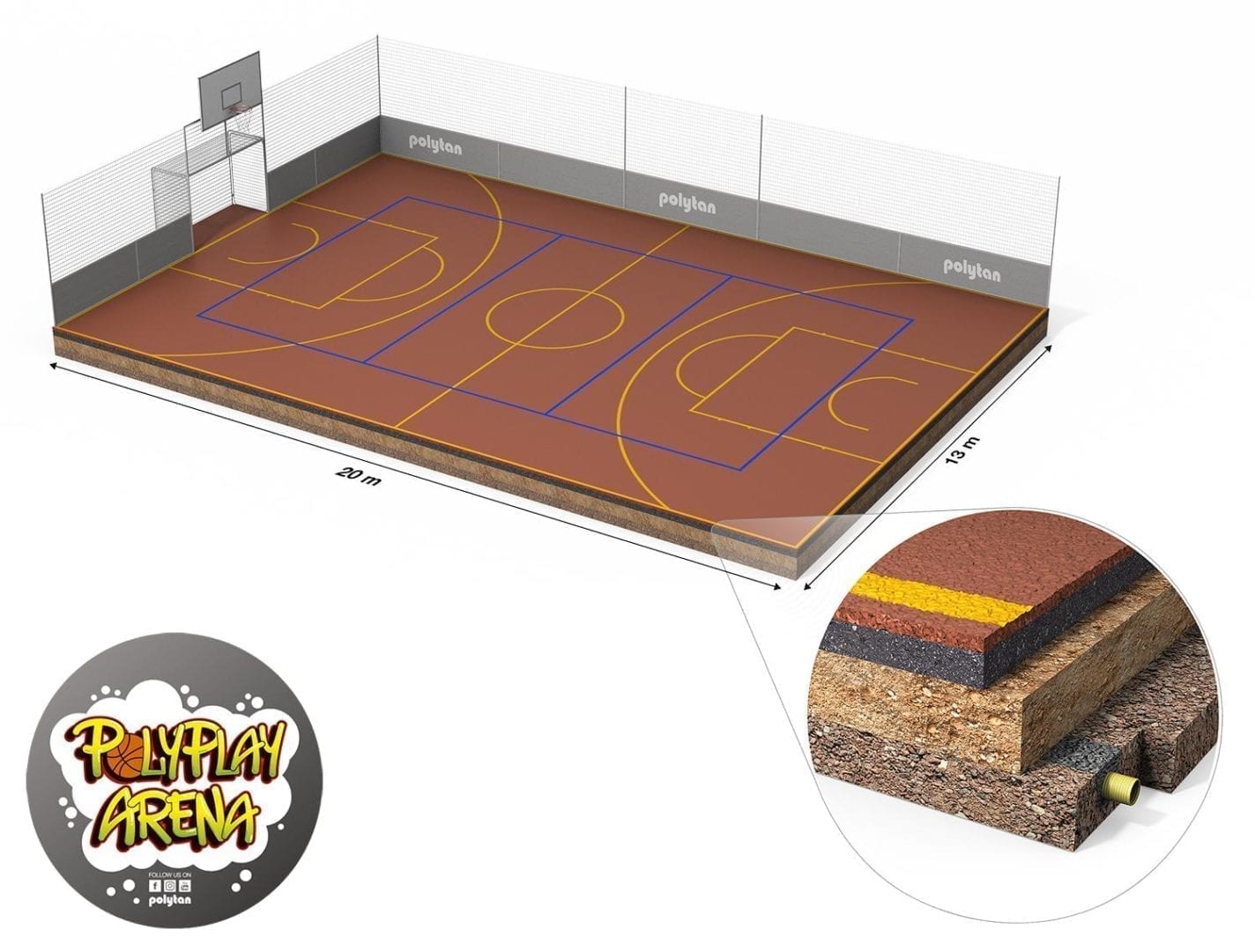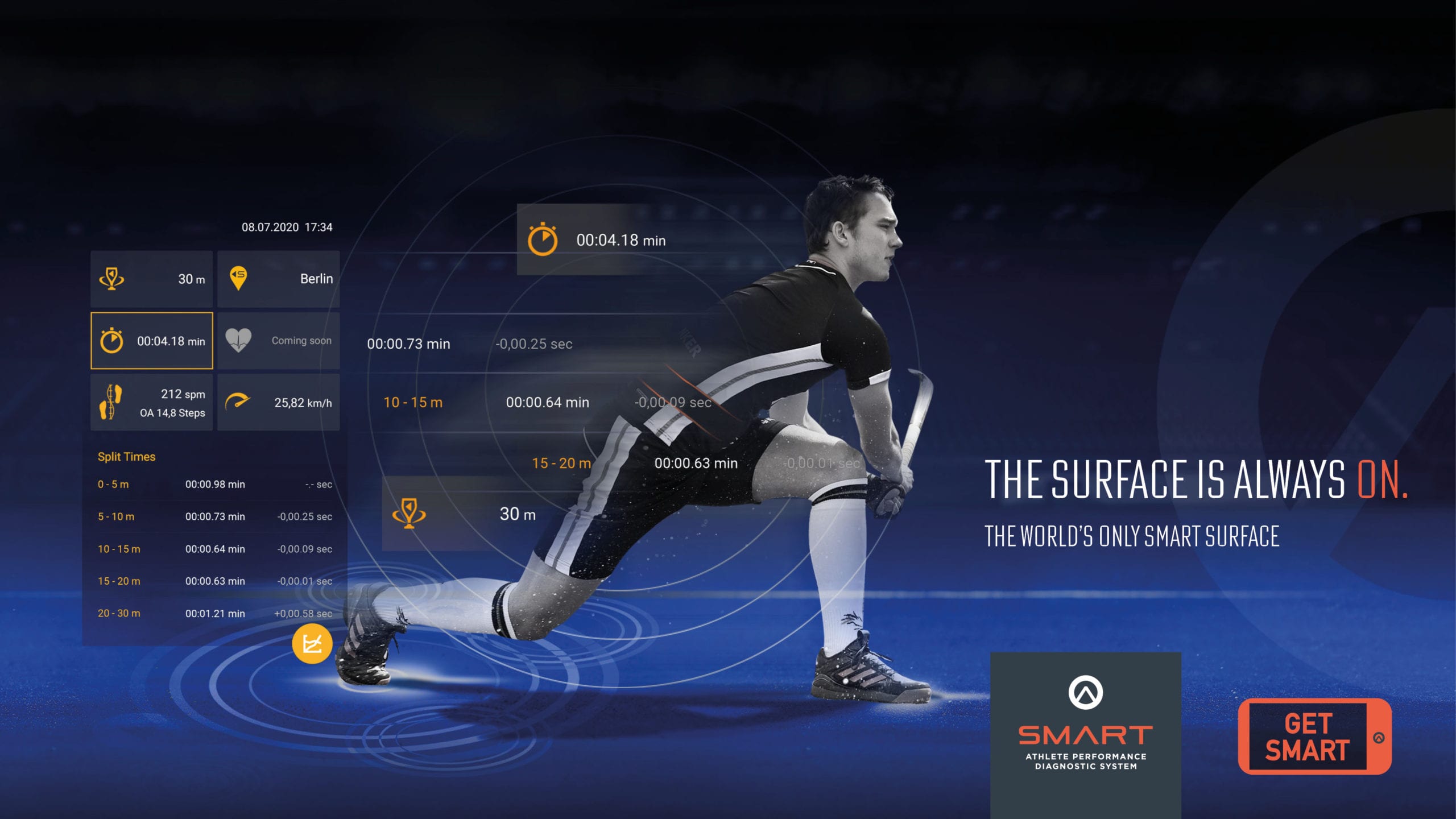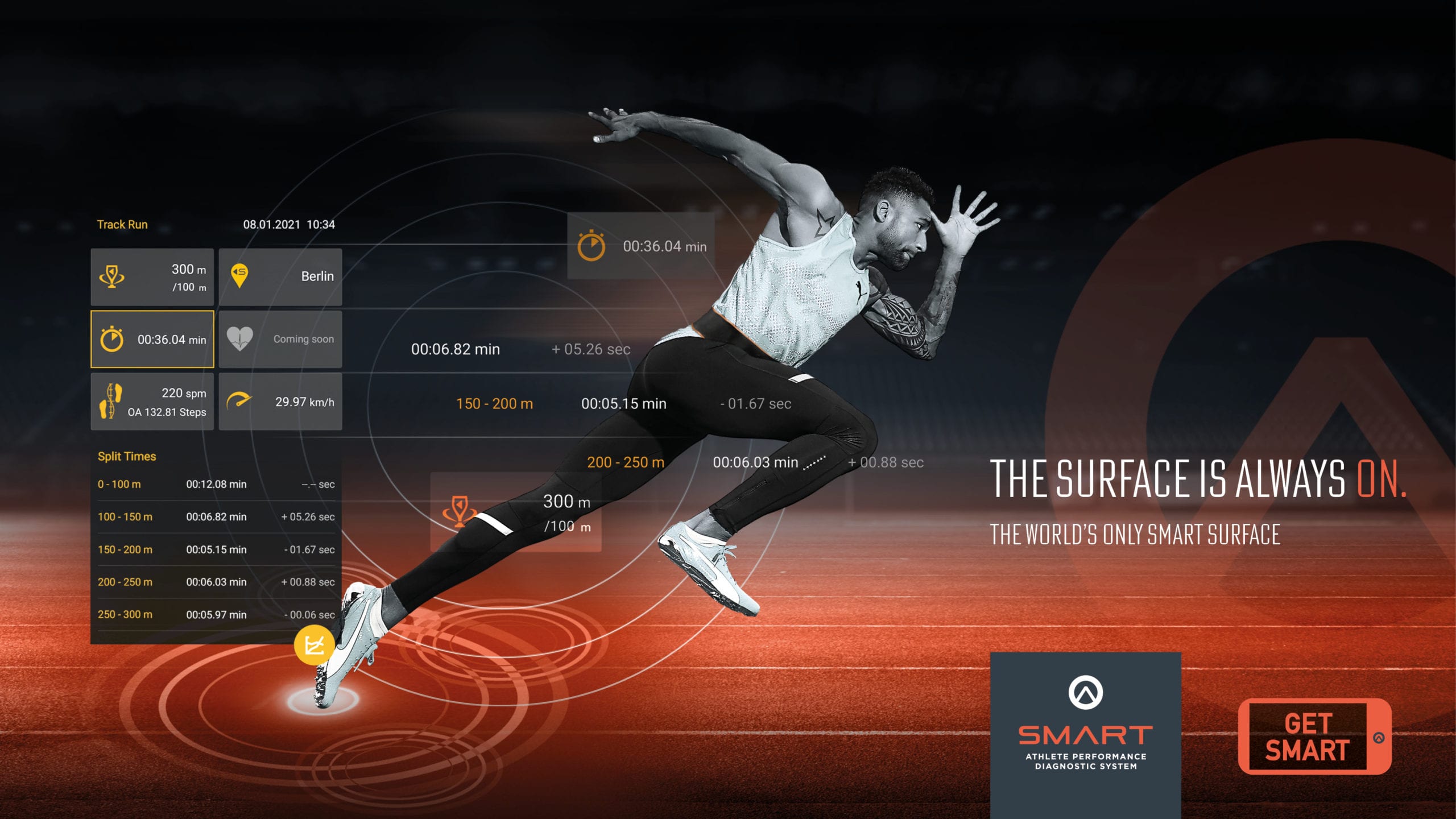Padel has nothing to do with paddling on water. Rather, the new trend in Germany is a racket sport: a mixture of squash, badminton and tennis (doubles), played by four players on a court enclosed by safety glass and mesh walls, which – like in squash – can be incorporated in the game. Padel is essentially an indoor sport, which is also suitable for outdoors. It gets its name from the former rackets that were used in the game, which were predominantly made of wood and resembled canoe paddles.
At first glance, padel looks like a pocket-sized version of tennis, but despite their similarities, there are also significant differences: the serve is not played overhead in the sense of a “whole body movement”, but played underhand at hip height. At 20 x 10 metres, the playing field is much smaller than a regular tennis court, and the ball cannot go “out”, as it can bounce off the walls and, at worst, get stuck in the net that separates the two halves of the court. The court is surrounded by 3–4-metre walls on all sides. The floor surface of the court is usually made of synthetic turf, sprinkled with fine quartz sand. However, padel can also be played on porous concrete, cement, or other synthetic materials, provided that the surface enables consistent bouncing behaviour and does not collect water. Only the scoring system is the same as in tennis: 15/0, 30/0, 40/0, game, deuce or advantage. Six games are needed to win a set, and at least two sets are needed to win the match.
Plenty of fun and maximum movement guaranteed
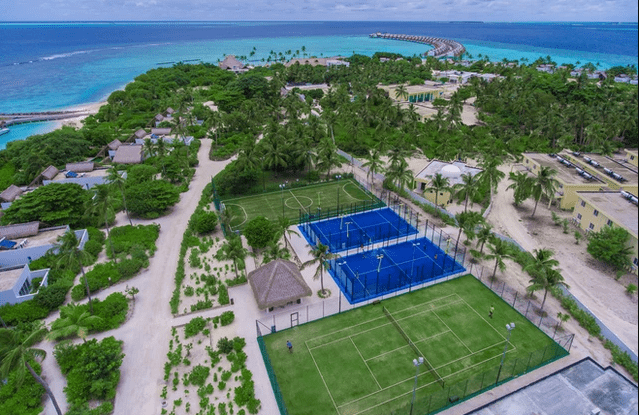
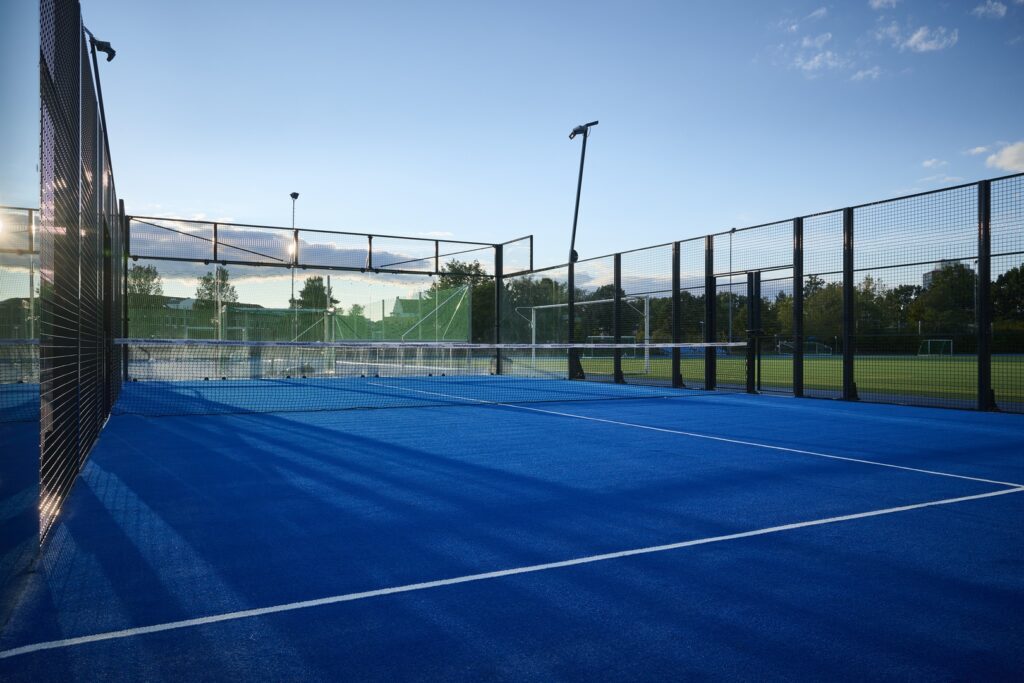
Popular and trending sport
In Spain and Latin America, pádel is one of the most popular sports overall and has long been considered mainstream. Tens of millions of people around the world currently play padel. As a professional sport, Padel is set to debut as an Olympic discipline at the Brisbane 2032 Games.
In Germany, padel is growing in popularity but is essentially still in its infancy. At a national competitive level, the game is played in the German Bundesliga of the German Padel Association – the official champions are FC Weiden and TC Grötzingen for men and women respectively – and there are even two national teams.
While Spain enjoys a wealth of padel courts (14,000), in Germany there are only around 70 padel locations (as of 2021). Between them, they have 130 courts, of which 44 are indoors and 86 outdoors. Polytan, the international specialist in sports flooring from Burgheim in Bavaria, wants to change that, and help the world’s fastest-growing sport achieve greater popularity in Germany too. Together with partners, the company is offering complete packages, i.e. padel courts including artificial turf. Two facilites have already been built in Potsdam & Ahrensfelde. If you are interested in a complete package from the German manufacturer, please contact Polytan.
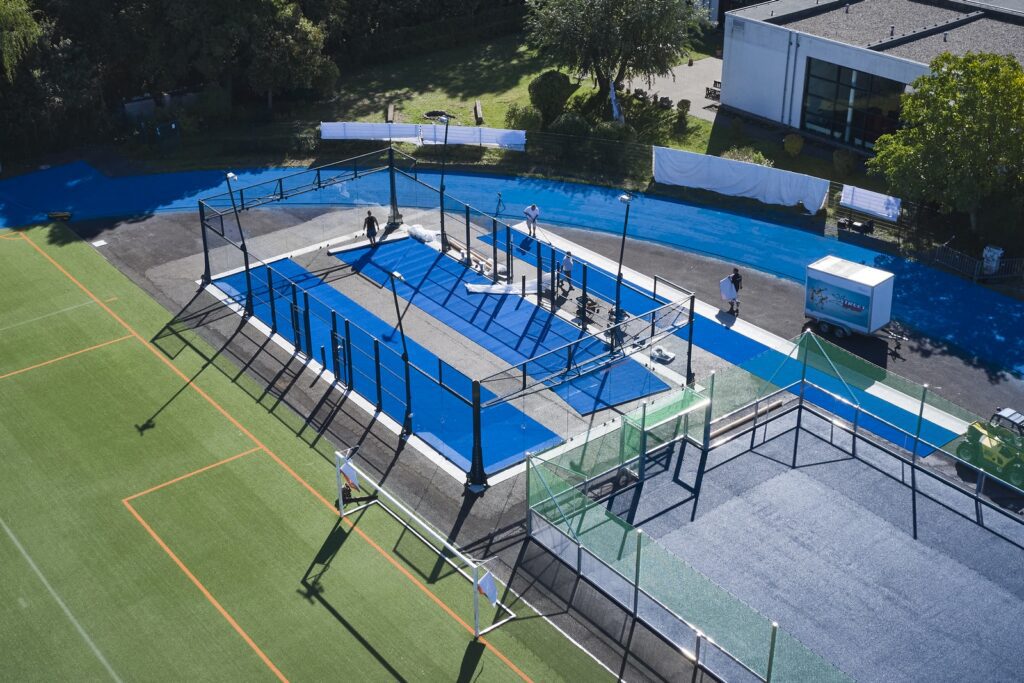
Suitable floor surfaces from Polytan
Cost of padel facilities
Refinancing (for tennis clubs)
